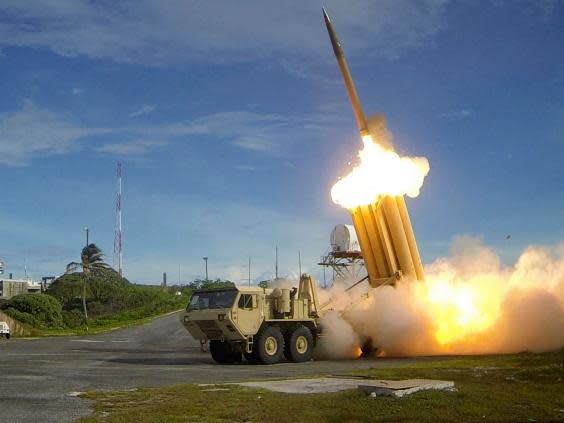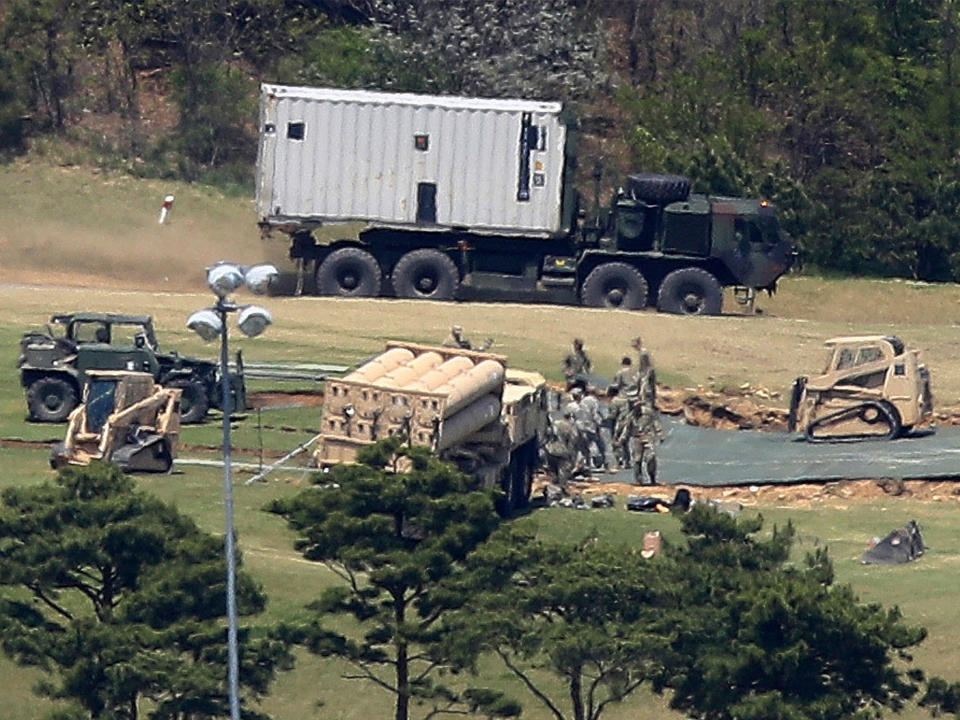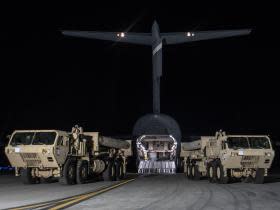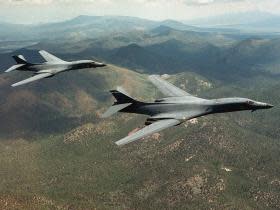China tells US to remove anti-missile THAAD system from South Korea amid spying fears
China has demanded the US reverse the deployment of an anti-missile defence system aimed at preventing a strike by North Korea on its southern neighbour, saying it could be used as a tool for spying.
Beijing says its opposition to the stationing of a THAAD unit in South Korea is based on concerns that it could interfere with its own military operations.
The defence system, situated on a former golf course in the southern province of Seongju, has reached initial operational capacity.
However it will be several months before THAAD is fully operational, US officials said.
Read more
US and South Korea agree 'early' deployment of missile defence system
South Korea already operates a Patriot PAC-3 missile defence system, but it is the sophisticated radar element of the THAAD which Beijing fears would allow Seoul and Washington to monitory activity well beyond North Korea’s borders.
Foreign ministry spokesman Geng Shuang urged “relevant sides to immediately stop the deployment” and said China would “firmly take necessary measures to uphold our interests”.
“China has always believed that using peaceful means via dialogue and consultation to resolve the peninsula's nuclear issue is the only realistic, feasible means to achieve denuclearisation of the peninsula and maintain peace and stability there, and is the only correct choice,” he added.
The Terminal High Altitude Defence system is a truck-mounted defence system designed to shoot down short, medium, and intermediate range ballistic missiles in their terminal phase – the final stage of the missile flight before impact.
When completed, it will consist of six launchers that can fire up to 48 interceptors toward incoming missiles.

The company behind THAAD claims the system has had 100 per cent success intercepting missiles since testing began in 2005 (EPA)
The US has six units deployed around the world, including in Guam and Hawaii, to protect its own territories from missile attack.
But Beijing fears placing the system in South Korea could put it within range of China, allowing it to spy on the communist state.
Read more
North Korea says US bomber flights pushing world to brink of war
Seongju residents are also worried that they will be a target for North Korean missiles.
Donald Trump has praised THAAD as "phenomenal, shoots missiles right out of the sky”, but has also called for the South Korea to pay for it.
“It would be appropriate if they paid. It's a billion-dollar system,” he said.
Under an agreement reached with the Obama administration, South Korea offers the land and facilities for THAAD but not the cost of operations.
Video not available for syndication
Trump's security adviser says North Korea will be solved 'one way or another'
On Sunday, White House National Security Adviser H R McMaster confirmed the US would not be seeking South Korean money for the system.
The potential for a clash between China and the US over THAAD risks efforts by Mr Trump to cajole Beijing into using its diplomatic levers to resolve the crisis with North Korea.
Washington is seeking the help of the Chinese - the North's only major ally – to rein in the rogue state’s nuclear programme.
Meanwhile, North Korea has accused the US of pushing the peninsula to the brink of nuclear war after a pair of strategic American bombers flew training drills with the South Korean and Japanese air forces.
Pyongyang claimed the two supersonic B-1B Lancer bombers conducted "a nuclear bomb dropping drill against major objects" in its territory.
"The reckless military provocation is pushing the situation on the Korean peninsula closer to the brink of nuclear war," the North's official KCNA news agency said.
Additional reporting agencies



